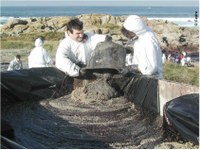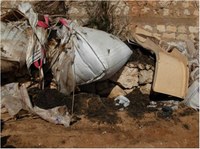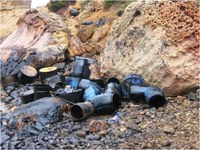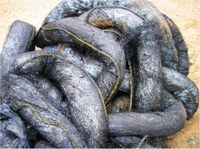Home
The waste management operation is often the longest and costliest operation after a major oil spill. The main difficulty in planning oil spill waste management is to prepare a waste management plan for an unexpected nature and volume of oil spill waste, taking into account the possible types of waste, the facilities available and the treatment techniques required. Reference must also be made to legal, financial, environmental, operational and logistics issues.
The project “Mediterranean Oil Spill Waste Management Study and Decision Support Tool" was launched by REMPEC with a view to produce a decision support tool, to be used by any country when establishing or revising its national waste management strategy for oily waste resulting from a marine accidental pollution, aiming at facilitating the determination of the most suitable techniques for the Countries and also at highlighting, where necessary, regulatory amendments.
The Tool focuses on oil spill waste, i.e. oil, weathered and/or emulsified oil, oiled material, oiled sediment, oiled equipment, etc. recovered after an accidental oil spill.
The Tool is designed to assist any country of the Mediterranean Sea to develop a complete and operational “Oil Spill Waste Management Plan - OSWMP” covering:
- Preparedness: developing an oil spill waste management plan.
- Response: choosing the best oil spill waste treatment.
The “Mediterranean Oil Spill Waste Management Guides" endorsed by the 10th Meeting of Focal Points of REMPEC, 3-5 May 2011, Malta was used to develop the present Internet application which is aim at facilitating the develop of national waste management policy into an "oil spill waste management plan", considering possible waste treatment methods, the types of waste (that may be produced during an oil spill) and the existing facilities in the country.





